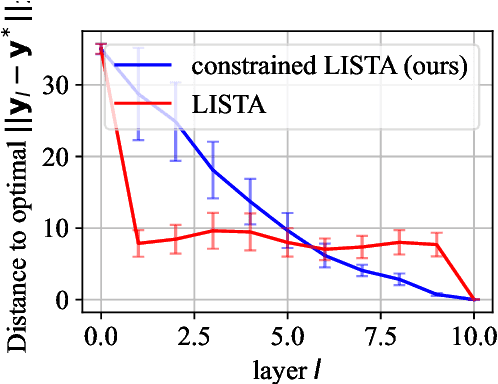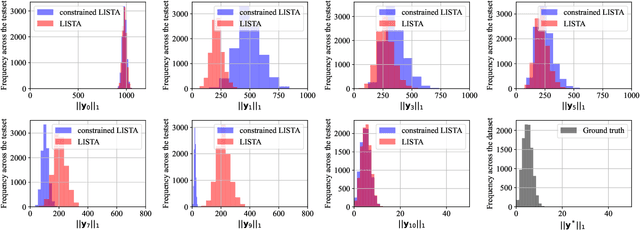Robust Stochastically-Descending Unrolled Networks
Paper and Code
Dec 25, 2023



Deep unrolling, or unfolding, is an emerging learning-to-optimize method that unrolls a truncated iterative algorithm in the layers of a trainable neural network. However, the convergence guarantees and generalizability of the unrolled networks are still open theoretical problems. To tackle these problems, we provide deep unrolled architectures with a stochastic descent nature by imposing descending constraints during training. The descending constraints are forced layer by layer to ensure that each unrolled layer takes, on average, a descent step toward the optimum during training. We theoretically prove that the sequence constructed by the outputs of the unrolled layers is then guaranteed to converge for unseen problems, assuming no distribution shift between training and test problems. We also show that standard unrolling is brittle to perturbations, and our imposed constraints provide the unrolled networks with robustness to additive noise and perturbations. We numerically assess unrolled architectures trained under the proposed constraints in two different applications, including the sparse coding using learnable iterative shrinkage and thresholding algorithm (LISTA) and image inpainting using proximal generative flow (GLOW-Prox), and demonstrate the performance and robustness benefits of the proposed method.
 Add to Chrome
Add to Chrome Add to Firefox
Add to Firefox Add to Edge
Add to Edge